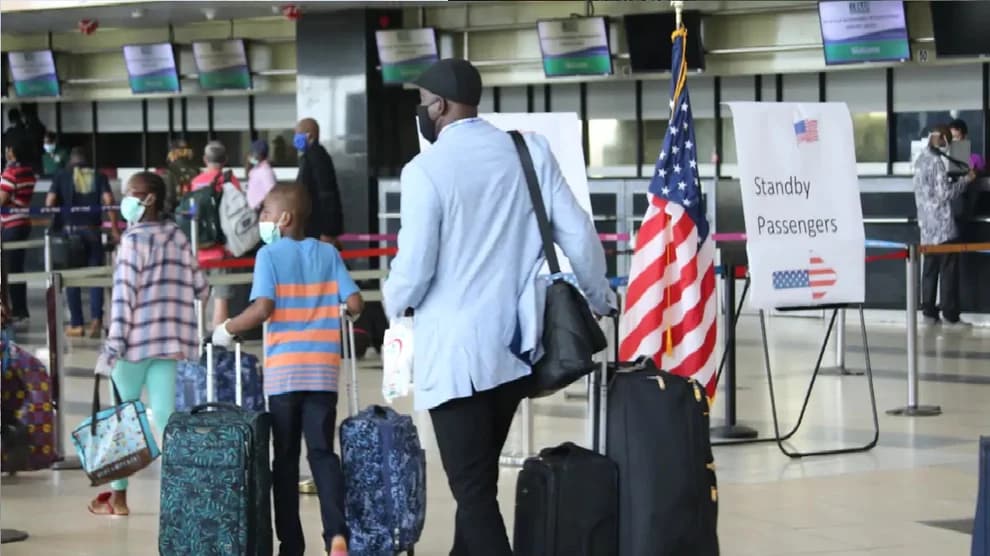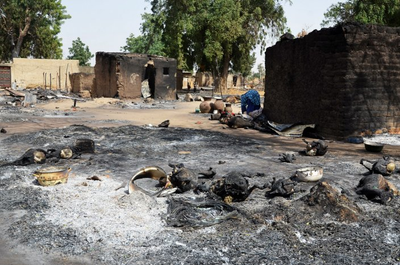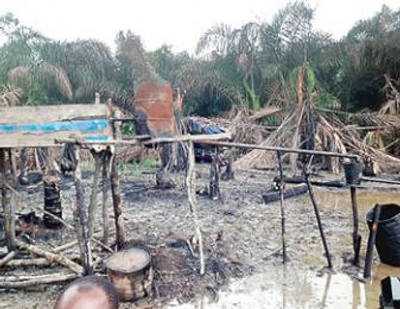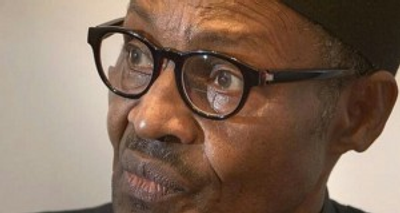Nigeria’s Buhari needs to avoid telling the ‘single story’ about Nigerians abroad – Earlier this week, in the course of answering a question in an interview in London with British newspaper The Telegraph, Nigeria’s president Muhammadu Buhari gave an insight into his thinking that promptly kicked off a firestorm on Nigerian social media.
Here’s the relevant section of that wide-ranging interview:
A number of Nigerians use the migrant routes to come to the UK to claim asylum, saying their lives are at risk from Boko Haram. Is is legitimate for them to do so?
“Some Nigerians claim is that life is too difficult back home, but then again some Nigerians have also made it difficult for Europeans and Americans to accept them because of the number of Nigerians in different prisons all over the world accused of drug trafficking or human trafficking. I don’t think Nigerians have anybody to blame. They can remain at home. Their services are required to rebuild the country. If their countrymen misbehaved, the best thing for them is to stay at home and encourage the credibility of the nation.”
Do you think that Nigerians have an image problem abroad?
“Certainly. But we are on our way to salvage that. We will encourage our countrymen to stay at home, work hard and make a respectable living at home.”
The comments were translated by some Nigerians on social media and in the press as Buhari having called Nigerians “criminals”, which as the transcript shows, he did not. But what he did say when asked about Nigerians using the Boko Haram crisis as cover to claim asylum in the UK, revealed a lot about his thought process. For one thing, he did not actually answer the question he was asked. This is the working definition of a gaffe—saying what you actually think as a politician.
The journalist’s question was about the current situation with Boko Haram. That is, are things bad enough in Nigeria’s north east to warrant anyone making the dangerous trek to Europe via the Sahara desert? Whatever you think about the question, you will have to agree that millions of Nigerians have been internally displaced as a result of Boko Haram and continue to live in camps around the country. Various newspaper reports (paywall) about the migrants heading to Europe have also revealed Nigerians make up a significant number of those making the crossing.
For the most part, these are desperate people, who have decided to take their chances on a treacherous journey even with the odds stacked against them, than tough it out back home. For a president battling a terrorist group that’s ready to die for their questionable cause, there is no shame in admitting that. While gains have been made against Boko Haram in the last eight months, life is not yet back to normal for people who have been on the receiving end of terror for the best part of the last decade.
Rather than answer this question, the president launched into a somewhat bizarre segue about the well-worn image problems of Nigerians abroad. Certainly, by including the United States in his answer, he either did not hear the question correctly or he was eager to get this particular point off his chest.
To be fair, this is common among Nigerian politicians when they come visiting London. Back in 2011, I attended an event for Nigerians in London with the then Lagos state governor, Babatunde Fashola as the speaking guest. Someone asked him a question about tapping into the talent pool of Nigerians in the diaspora. Just like Buhari, he launched into a rant on not needing to beg any Nigerian to return home. It was as if to say it should be obvious to them that Nigeria is a glorious place for them to return. That was my cue to leave.
President Buhari’s comments follow in a long tradition of a certain tension between some Nigerians at home and Nigerians in the diaspora.
The Single Story of Nigerians Abroad
It is certainly true that Nigerians have an image problem abroad. In the 1980s, after then prime minister Margaret Thatcher’s ‘Big Bang’ reforms widened access to finance for the British population, fraud spiked. As financial institutions tried to get a handle of what was going on, Nigerians, in particular, were targeted because it was believed fraud was widespread enough among the community it was safer for the banks to blacklist all of them. Even till now there are still stories of Nigerians running scams to defraud pensioners or scamming people on a dating website.
President Buhari almost seems to have some kind of disdain for Nigerians who leave the country to seek a better life elsewhere.
Whether or not the image problems Nigerians have abroad is justified, there is certainly evidence to back it up if that’s the ‘single story‘ you’re looking to tell.
But if you leave the argument at that point, like president Buhari clearly did, you will miss the most important part of the story of what’s going on with Nigerians abroad and the UK in particular. The president almost seems to have some kind of disdain for Nigerians who leave the country to seek a better life elsewhere. His comments suggest that he views them as shirkers who have abandoned the task—with apologies to Donald Trump—of making Nigeria great again.
He is spectacularly wrong.
New beginnings
Nigerians have been migrating to the UK for at least five decades mostly as students and as economic migrants. Many of these people were forced to remain in the shadows in the UK doing odd jobs. But over the years that fixed image has changed gradually both with long-term residents and more recent migrants in the last couple of decades.
Take for example of the wave of 2002 migration. The UK launched the Highly Skilled Migrant Programme visa. The visa, crucially, allowed you to live and work in the UK without being tied to a particular employer. It also offered a very straightforward path to citizenship with about seven years. The programme attracted a lot of professional Nigerians out of Nigeria—the more work experience you had in Nigeria before applying, the higher your chances of qualifying.
Once in the UK, to have the visa renewed, you then had to demonstrate earnings at a certain level as well as various other things like additional degrees or professional qualifications. The HSMP visa was a massive boon to Nigerians and they grabbed it with both hands. People left good jobs in banks and oil companies in Nigeria and moved to the UK. After finding their feet for a couple of years, they began climbing up the income ladder.
These were by no means lazy shirkers; they were hard working people who responded very well to their talents being recognized and rewarded in a new environment.
Follow The Money
If you take the World Bank figures for remittances to Nigeria as a proxy, you can see this playing out. According to the World Bank, the pattern of remittances to Nigeria from the diaspora can in the last 15 years is shown below.
To be clear, not all of this can be attributed to Britain (After 1995, Nigeria became eligible for the US Visa Lottery programme and it had a similar effect to the UK’s HSMP) and it is possible that the World Bank was previously undercounting. But what happened from 2004 was nothing short of spectacular. The highly educated Nigerians who left Nigeria in the early 2000s had begun to find their feet abroad and started sending money back home.
The estimated $21 billion sent home by Nigerians abroad in 2015 is far more than the $15 billion the Nigerian government hopes to earn from oil sales in 2016. At a time when Nigeria is desperate for every dollar it can lay its hands on, remittances are a lifeline for the economy.
This is the part of the story president Buhari has clearly missed. There are still plenty of Nigerians abroad up to no good. There are also plenty of Nigerians in prisons all across the world. But you don’t get $21 billion remitted back home from prisons around the world. You get it from people who earn a decent living abroad and have the disposable income to remit home.
Read More (Courtesy: Quartz Africa)






